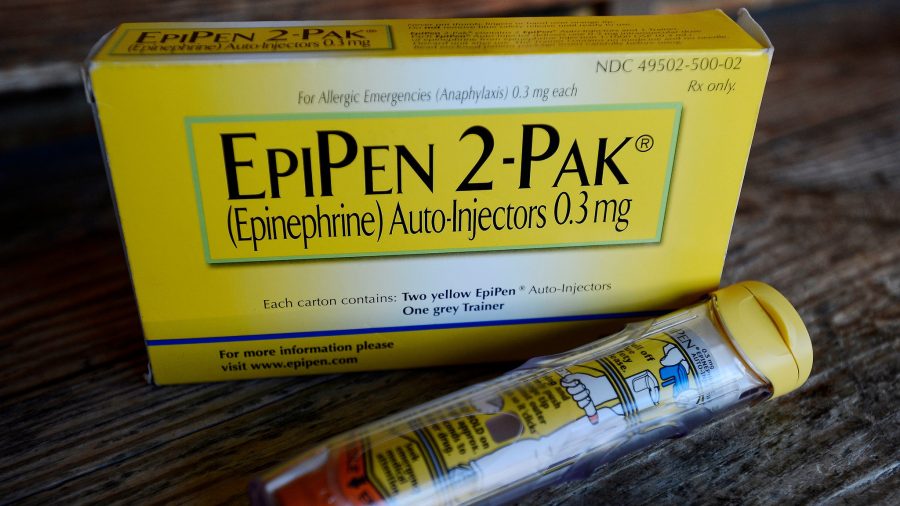EpiPen prices escalate
September 1, 2016
Americans raged over the recent hike in price for EpiPens, an auto-injector that administers epinephrine in the case of a severe allergic reaction. In 2007, Mylan, a global generic pharmaceuticals company took over EpiPen from chemicals company, Merck Group. Over the last nine years, Mylan increased the price of the product by over 600 percent. What once cost $100 for a pair of EpiPens, now costs over $600.
“It’s unfair in the way that people don’t choose to have life-threatening allergies and yet the company treats the things that can save them as if they are luxuries when some individuals cannot afford them,” junior Delaney Richmond said. “The fact that they are making that much money off of people who are trying to keep themselves alive is despicable.”
Over three million Americans, including children suffering from life-threatening allergies, use the device annually. Mylan claims that individuals with health insurance and medical co-pay cards do not have to pay the listed price. Yet, many cannot afford adequate health care, let alone EpiPens. Parents worry that as prices increase, they will not be able to afford the life-saving device for their children.
“These are people’s lives at stake,” senior Emily Echeverria said. “Mylan should find other methods of increasing their profits, or rather have a third party assisting people who can’t afford the increase in affordability”
While the price of EpiPens rises, so has Mylan’s CEO Heather Bresch’s paycheck, to $19 million this year. Heather Bresch, Chief Executive Officer of the company since 2012, increased prices for EpiPens right before the launch of Mylan’s new generic brand auto-injector. Without any noticeable competition, Bresch manipulated the value set for EpiPens for years, bringing in half of Mylan’s total profit; she increased the value three times each year, along with her salary. Her skills in marketing tripled the company’s stock price from $13 billion in 2007 to over $42 billion in 2016.
On Monday Aug. 29, Mylan announced the release of a new generic brand of the EpiPen, estimated to cost $300–half of the original price. Analysts expect the new generic to bring in more revenue for Mylan than any profits from the $600 EpiPen did.








